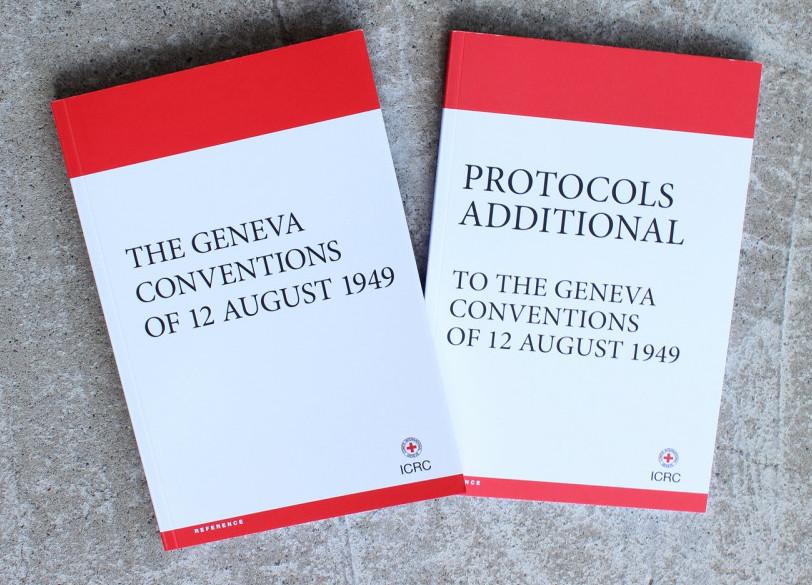Today we mark 74th anniversary of the Geneva Conventions

Today is the 74th anniversary of the four Geneva Conventions. The Geneva Conventions are a set of treaties and protocols which set out international law in regards to the conduct of war, especially on the treatment of prisoners and civilians.
The Geneva Convention, the most famous of the numerous conferences, was a series of conferences directly after World War II, reaffirming the much-abused principles laid out in previous Geneva and Hague conventions. These conferences yielded a final agreement signed on August 12, 1949.
The Geneva Convention of 1949 laid out the following four conventions:
- The Geneva Convention for the Amelioration of the Condition of the Wounded and Sick in Armed Forces in the Field;
- The Geneva Convention for the Amelioration of the Condition of the Wounded, Sick and Shipwrecked Members of Armed Forces at Sea;
- The Geneva Convention relative to the Treatment of Prisoners of War;
- The Geneva Convention relative to the Protection of Civilian Persons in Time of War.
The Geneva Conventions were a watershed moment in international humanitarian law, redefining jus in bello to fit a more modern world. Most importantly, the fourth convention on the Protection of Civilian Persons finally established in international law a foundational responsibility towards the protection of civilians during war. Countless international agreements have been inspired by the convention of 1949, ranging from the additional protocols to the Geneva Convention (1977) to the Universal Declaration of Human Rights (1948). The Convention has also become universal, with over 180 party states.
More recently, the Geneva Convention has come to the public fore due to Russian actions in the illegal invasion of Ukraine. Although Russia recently revoked one of the additional protocols to the Geneva Convention, it remains a signatory to the main Geneva Convention of 1949. Its actions therefore violate obligations Russia holds under international law. Russia illegally hostages Ukrainian civilians, forces them into filtration camps, perpetrates shelling of civilian objects, and conscripts Ukrainian citizens.
The invasion of Ukraine signifies the contemporary relevance of the Geneva Conventions. The suffering which we see not only in Ukraine but also in South Sudan, Yemen, and other conflicts around the globe could be alleviated by adherence to the universal ethical values laid out in the conventions. On this anniversary of the Geneva Convention, we must consider the role that international law plays in regulating armed conflict in order to promote ethical and moral behavior.
Note: When referring to the Russian invasion of Ukraine, this article largely discusses violations of international law specifically in the context of the Geneva Convention of 1949. It is important to remember that the conflict is also in violation of jus ad bellum rules and a miscellany of jus cogens norms. Of course, within jus in bello, Russian actions such as indiscriminate civilian killings, sexual and gender based violence, and alleged genocide also violate international law outside of the Geneva Conventions (the aforementioned examples are all considered war crimes under the Rome Statute and the UN Charter, in addition to a plethora of other agreements and customary norms).
By Sergey Shkolnikov
Columnist and researcher with an interest in IR and IHL & previously US youth Ambassador to Germany. Currently based in Berlin, Germany.
Photo: Bangladesh Red Crescent Society

